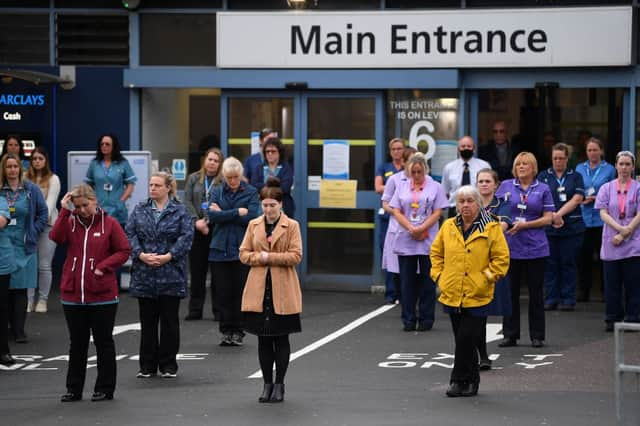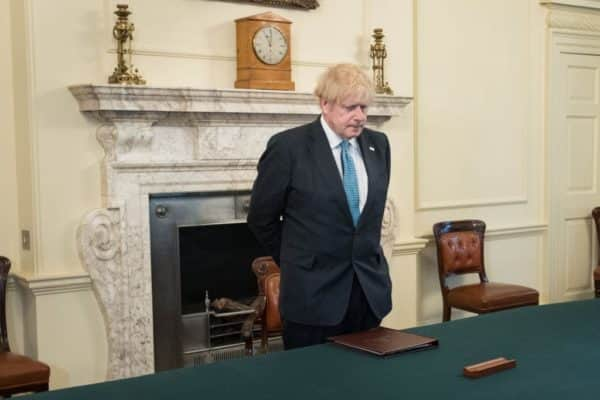The UK will pause for a minute's silence today - National Day of Reflection explained


A National Day of Reflection will be held today (23 March) by end-of-life charity Marie Curie to remember those who have died during the Covid-19 pandemic.
Here is everything you need to know about it.
When is the minute’s silence?
A minute’s silence will be held at 12pm followed by a bell toll and people are being encouraged to stand on their doorsteps at 8pm with phones, candles and torches to signify a “beacon of remembrance”.
Advertisement
Advertisement
The Prime Minister has said he will observe the minute’s silence privately at noon, while the Speakers of both Houses of Parliament will lead a minute’s silence to mark the anniversary of the first coronavirus lockdown.
Sir Lindsay Hoyle, Speaker of the House of Commons, said: “None of us has escaped the ordeal of Covid-19 – from the shock of having our liberty taken away, to the heartbreak of losing someone we loved.
“A year on, it is right that we take a moment to reflect on what we as a nation have been through; that we pay tribute to the many lives lost and the families that mourn them, and we say a big ‘thank you’ to our NHS staff who have worked so tirelessly on the front line caring for people in need.”
Labour leader Sir Keir Starmer, First Minister Nicola Sturgeon and Welsh First Minister Mark Drakeford will also support the day of reflection.
Advertisement
Advertisement
What else is happening?


The day will also see community-led activities take place such as virtual assemblies, choirs, services and yellow ribbons wrapped around trees.
Skylines will turn yellow with landmarks including the Tate Modern, Blackpool Tower, Winchester Cathedral, Belfast City Hall, The Kelpies, Cardiff Castle, and Caernarfon Castle lighting up at nightfall.
More than 200 organisations are supporting the day of reflection, including 82 leaders from religious groups and cross-party politicians, care organisations, charities, businesses, emergency services, public sector bodies, and community groups.
Celebrities including War Horse author Sir Michael Morpurgo and musicians Suzi Quatro and Steve Harley are taking part in a series of online talks to help those feeling isolated and struggling with grief.
Advertisement
Advertisement
Why has the Day of Reflection been organised?
Marie Curie are also asking people across the UK to take a moment to reach out to someone who is grieving. Whether it is by having a chat, sending a card, a message or by giving someone spring flowers.
According to the latest available data from the Office for National Statistics, there have been 618,676 deaths from all causes registered in England and Wales between 21 March 2020 and the week ending 5 March 2021.
Using a measure that estimates that every death leaves an average of nine people bereaved, Marie Curie said this could mean more than 5.5 million people have been bereaved.
A recent survey for the charity found that 56 per cent of those bereaved said they had “not had a chance to grieve” or “fully process” the loss they had experienced.
Advertisement
Advertisement
Marie Curie executive director Meredith Niles said: “Millions of us have been unable to say a proper goodbye or comfort our family, friends and colleagues in their grief.
“Although these absences will be felt for years to come, the national day of reflection gives us a moment to contemplate our collective loss, as well as take time to support those close to us, who are dealing with feelings of isolation and bereavement.”
Will there be a permanent tribute?


The Prime Minister has pledged to pursue a permanent national memorial to remember the victims of the coronavirus pandemic.
Boris Johnson told a Downing Street press conference on 18 March the Government will “certainly be pursuing” the creation of a permanent national memorial to remember the victims of the coronavirus pandemic.
Advertisement
Advertisement
Mr Johnson told the briefing: “On the idea for a national memorial, yes, we will certainly be pursuing that, and a lot of good suggestions have already come in, and you’ll be hearing more about that in due course.”
But Number 10 said there are “no further details” yet on what this might look like and when it will be unveiled.
London Mayor Sadiq Khan announced in November 2020 that 33 blossoming trees representing each of the capital’s boroughs will form the centrepiece of a new public garden at Queen Elizabeth Olympic Park to commemorate those who have died in the capital.
Welsh First Minister Mark Drakeford has also announced plans for two new woodlands in north and south Wales to act as permanent memorials “where families and others can come to remember all those we have lost”.
A version of this article originally appeared on our sister title, the Edinburgh Evening News